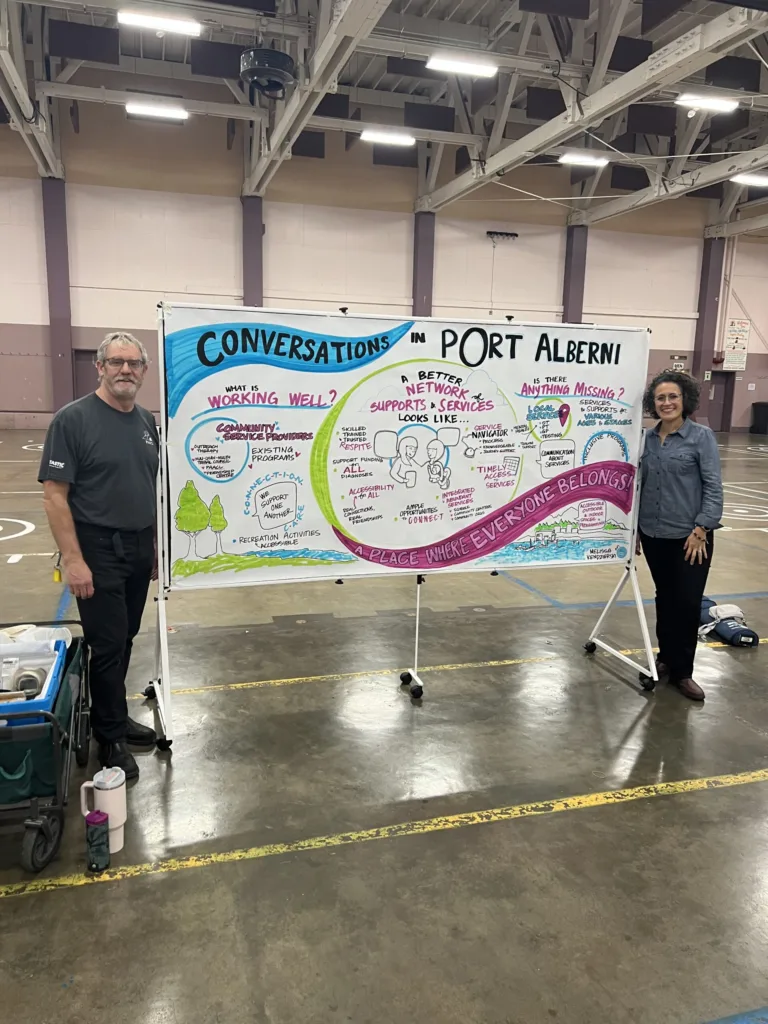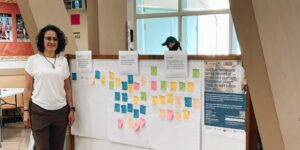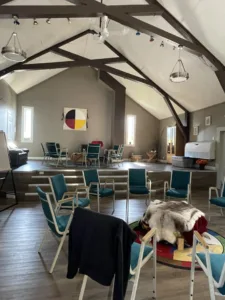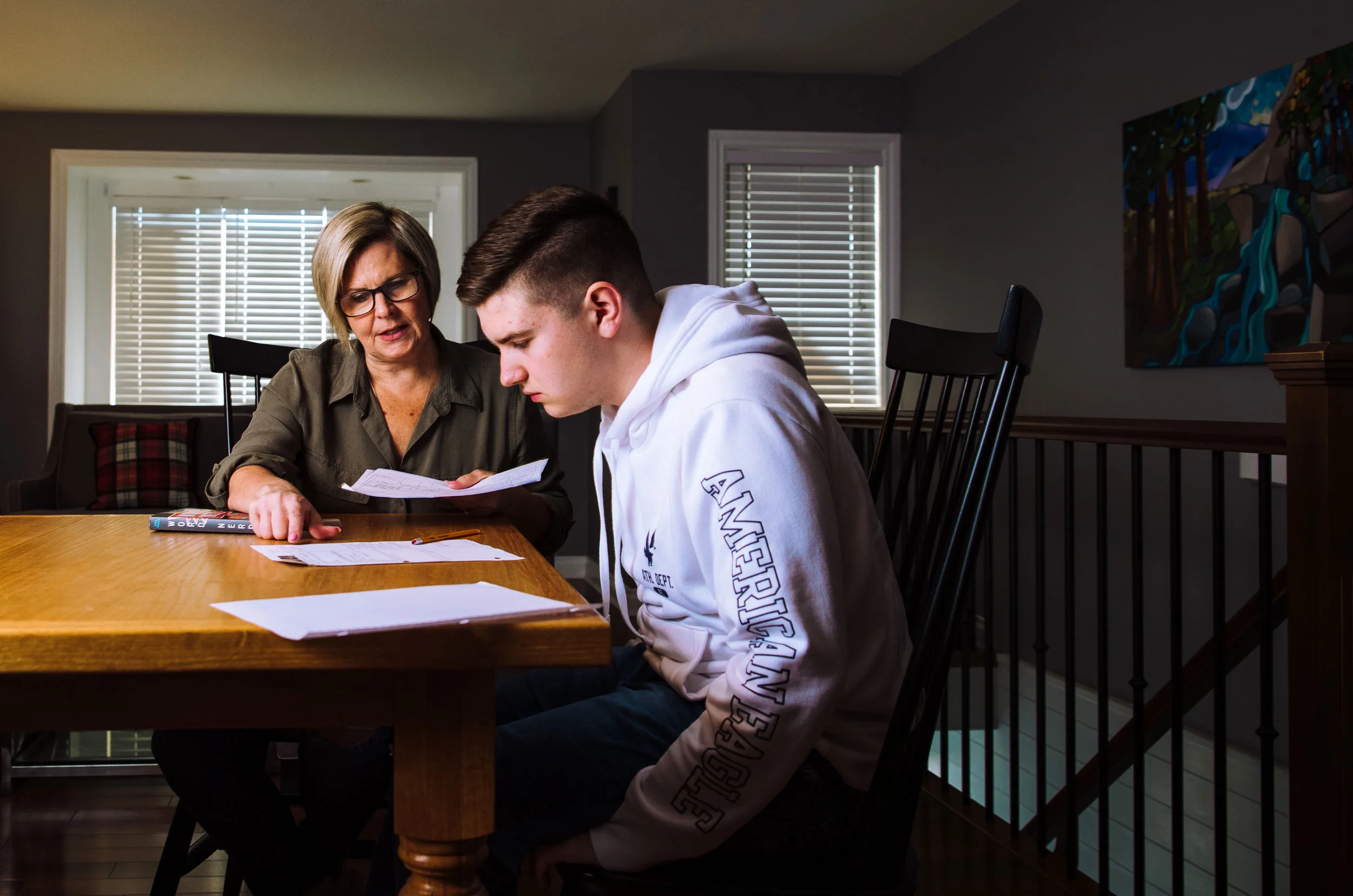We are excited to share some updates about the Community-Led Collaboration Project!
In 2023, we worked with five initial communities – Campbell River & Gold River, Castlegar, Kamloops, Port Alberni & West Island Communities, and Richmond – where we hosted a total of 29 sessions (in-person, virtual and hybrid) and connected with nearly 500 people to engage them in conversations about how to create a better network of services and supports for children and youth with disabilities or support needs and their families in British Columbia.
“I have so much to say about my daughter and her care, it’s hard to communicate it, but in this session, you did that.” – A parent in a family/caregiver session.

We spoke with:
- Indigenous and Metis families.
- Families with children with autism.
- Families receiving Nursing Support Services and the At Home Program.
- Families who are not receiving services.
- Newcomers to Canada and their communities.
- Families with young children and/or youth.
- Families whose children do or do not have a diagnosis.
- Youth transitioning to adult services.
In terms of service providers, we heard from:
- Those working in early years.
- Those providing Children and Youth with Support Needs (CYSN) services for ages 0 to 19.
- Employees/members of local school districts.
- Childcare centres.
- Childcare resources.
- Referral centres.
“We need a system that will allow families to immediately access someone who can help them to develop a profile of their child’s needs and map services on to the profile – immediate needs-based access to services.” – Service Provider in a session.
The preliminary results show that the barriers and challenges to receiving supports and services are well known. Our expectation is that action for meaningful change will not take long. Families need support now.
In their own unique ways, communities raised issues such as:
- Respite shortages.
- Staffing challenges.
- Funding needs and the lack of flexibility to use funding.
- Access to information and navigation.
- Waitlist challenges.
- Geographic spread as a challenge.
- The need to access services and supports within their communities.
- Problems with accessing services based on diagnosis.
- Insufficient support after age five and challenges during the school year.
- The need for greater continuity of care.

During the first half of 2024, we will revisit the five initial communities to present their Community Reports, check if we got their ideas right, and host solutions tables with their community members. Each Community Report highlights the main challenges and hopes of families and service providers when accessing and providing the supports and services that would better serve their children and youth.
The reports will add to a collective voice to report to the Ministry of Children and Family Development to inform the transformation of CYSN services.
Also, during 2024 more communities will be hosting their own community conversations with the support of a Community Engagement Grant. We received 19 applications and will be sharing more details about where these engagements will happen. We are encouraged by the local networks and the commitment of the engagement teams to host conversations that meet their community in ways that are supportive and meaningful to them.
Follow the Community-Led Collaboration project main webpage to know when the community reports are published and to know the recipients of the Community Engagement Grants for the communities that will be hosting engagements throughout 2024.
 What is the Community-Led Collaboration Project?:
What is the Community-Led Collaboration Project?:
We are engaging communities in conversations about how to create a better network of services and supports for children and youth with disabilities or support needs and their families in British Columbia. These conversations, designed in partnership with communities, aim to inform an inclusive, culturally safe, needs-based approach to providing supports and services that consider the specific circumstances of a community, the young people, and families in need of support, and, importantly, the voices of people historically excluded. At the center of this project are children and youth with disabilities or support needs who are 0-19 years of age, have a disability diagnosed or undiagnosed, need support, and/or have a possible developmental delay.
This article was featured in the latest edition of our monthly newsletter, Inclusion in Action. Subscribe today to receive regular updates with stories like this.


